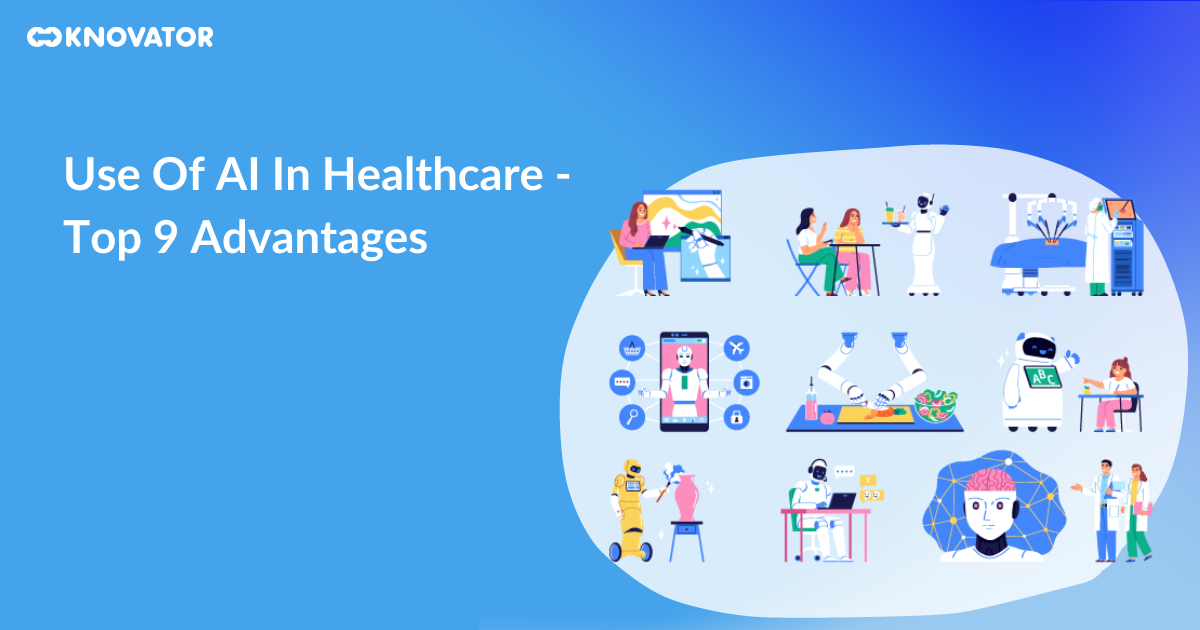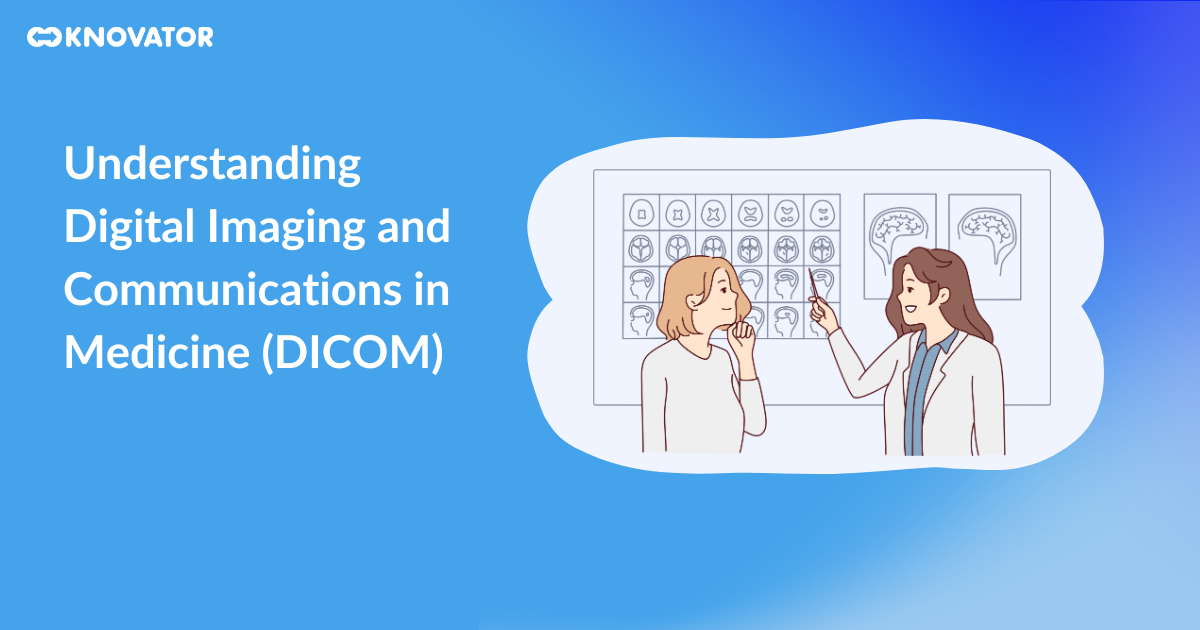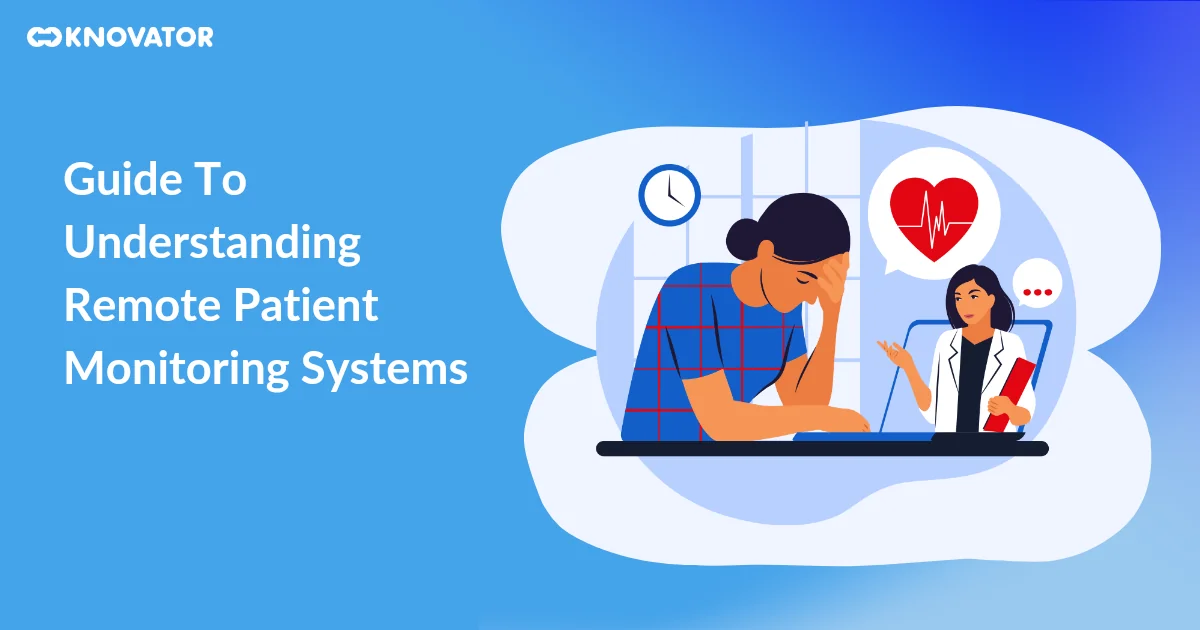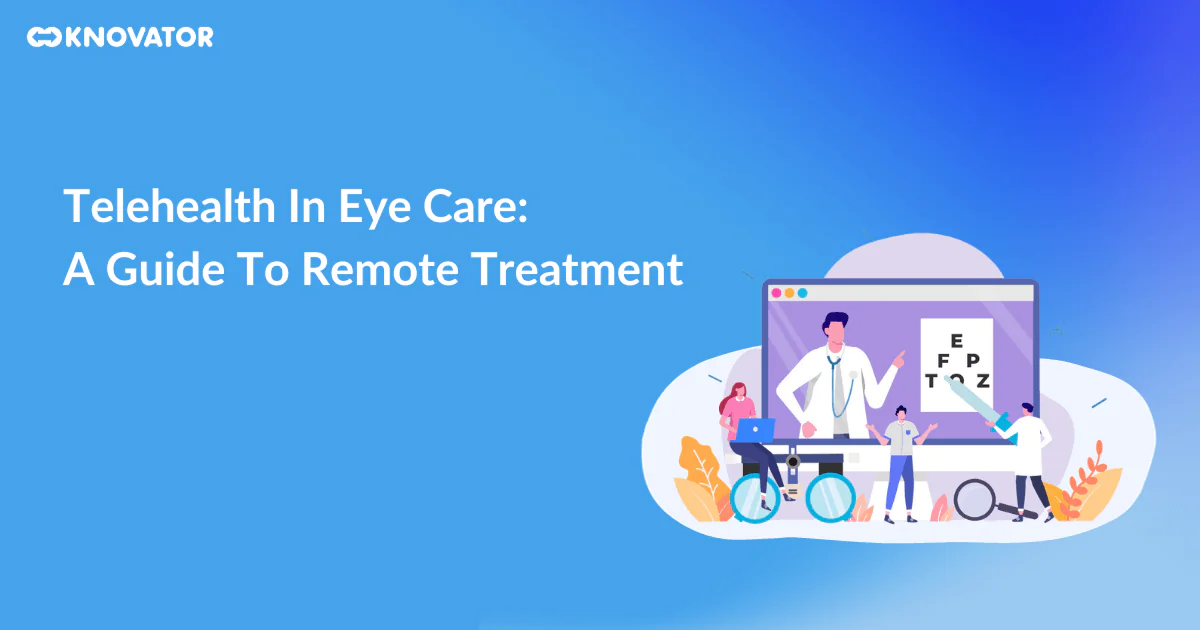Artificial intelligence (AI) has greatly impacted the healthcare industry, which is projected to become a $187.95 billion global market by 2030.
The use of artificial intelligence (AI) examples in healthcare has proven to be a game-changer, offering numerous benefits across various aspects of the industry.
In this blog post, we’ll begin with how AI plays a pivotal role in outlining the new image of the healthcare industry. Next, we’ll discover the top benefits of AI in healthcare examples and how they revolve around us.
So before getting started, let’s understand the basic question- How is AI used in healthcare?
How Is Artificial Intelligence Used In Healthcare?
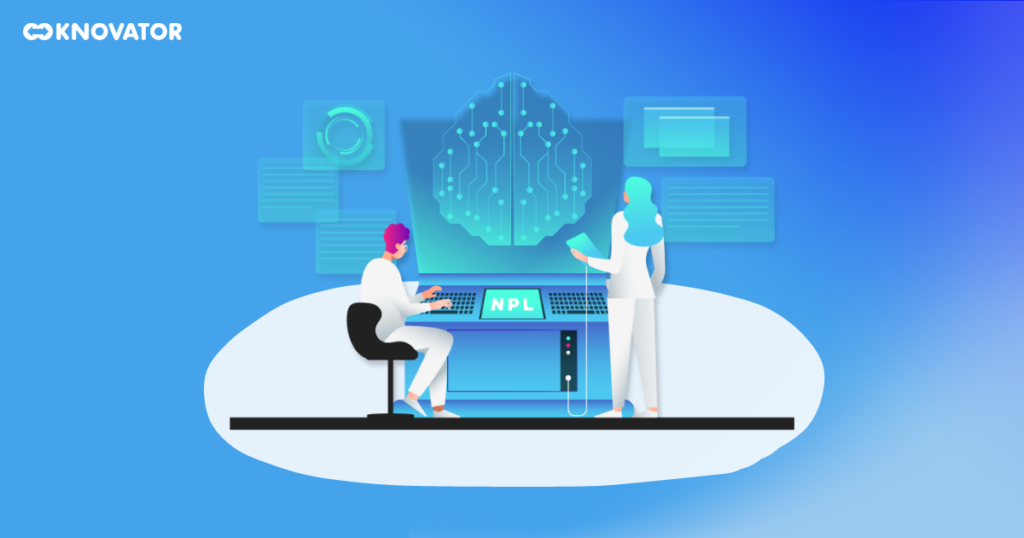 The term “artificial intelligence” was introduced by computer scientists Marvin Minsky and John McCarthy in the 1950s. AI refers to the ability of systems to perform jobs typically associated with human intelligence, such as reasoning, learning, and problem-solving.
The term “artificial intelligence” was introduced by computer scientists Marvin Minsky and John McCarthy in the 1950s. AI refers to the ability of systems to perform jobs typically associated with human intelligence, such as reasoning, learning, and problem-solving.
The use of AI in healthcare is expected to grow significantly in the coming years. According to research by Markets and Markets, AI spending in healthcare is expected to grow to $36.1 billion by 2025. The increasing availability of healthcare data, the development of new AI algorithms, and the growing demand for personalized healthcare drive this shift.
AI is being used in healthcare to enhance patient care in several ways, including:
- Diagnosis
AI-powered systems can analyze medical images and data to help doctors diagnose diseases quickly and efficiently.
- Treatment
AI helps personalize treatment plans for patients based on their medical history and risk factors.
- Risk assessment
It can identify the risk of patients developing certain illnesses so they can be monitored and treated early.
- Administrative tasks
AI automates administrative tasks such as scheduling appointments and processing insurance claims.
Advantages Of The Use Of AI In Healthcare
After understanding the brief introduction of how AI is used in healthcare, let’s consider its main benefits to decide whether it’s worth investing in.
1. Provides Real-Time Data
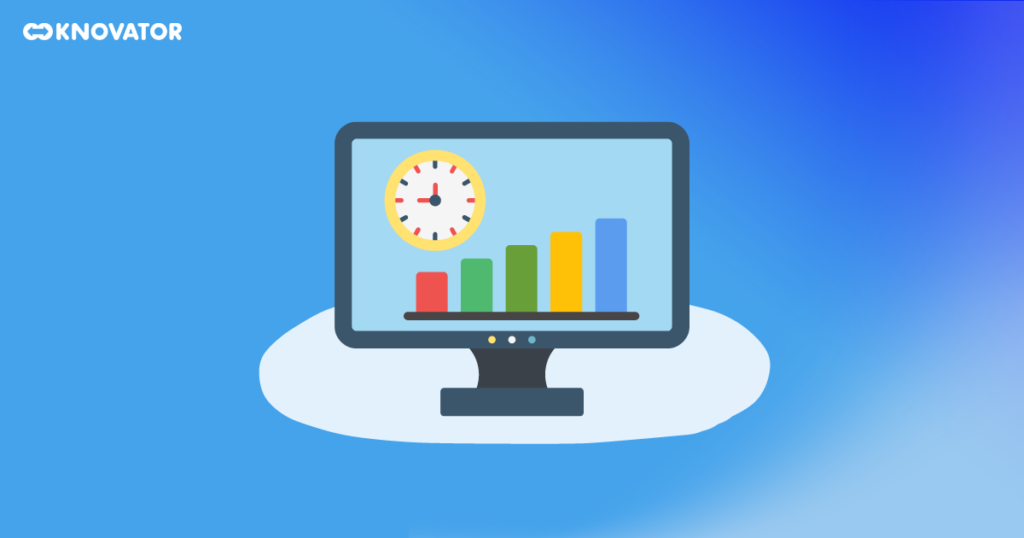 One of the most essential advantages of using AI in healthcare is that it can provide real-time data. This indicates that doctors and other healthcare providers can access the latest information about their patients, which can help them make better treatment decisions.
One of the most essential advantages of using AI in healthcare is that it can provide real-time data. This indicates that doctors and other healthcare providers can access the latest information about their patients, which can help them make better treatment decisions.
For instance, AI can monitor patients’ vital signs in real time. This can help doctors identify problems early on and prevent them from worsening. AI can also track patients’ progress over time, which can help doctors ensure they are getting the best possible care.
2. Helps with accurate and efficient diagnostics
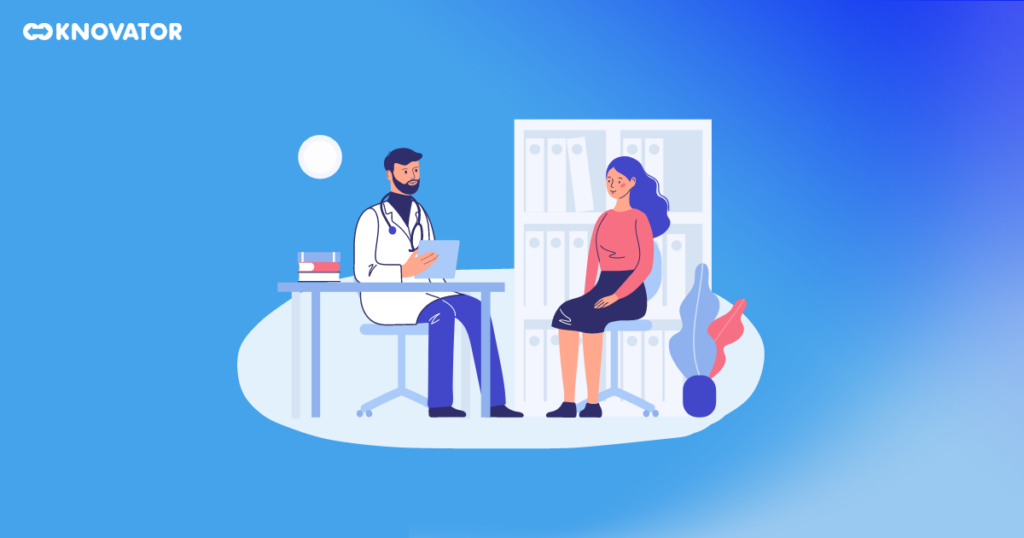 One of the most promising AI uses in healthcare is for diagnostics. In 2019, a study revealed that a deep-learning AI model had better accuracy in diagnosing breast cancer than 11 pathologists.
One of the most promising AI uses in healthcare is for diagnostics. In 2019, a study revealed that a deep-learning AI model had better accuracy in diagnosing breast cancer than 11 pathologists.
AI can analyze large datasets of medical images and data to identify patterns that would be difficult for humans to spot. This can help doctors diagnose illnesses more accurately and faster, leading to better patient outcomes.
3. Less overall costs
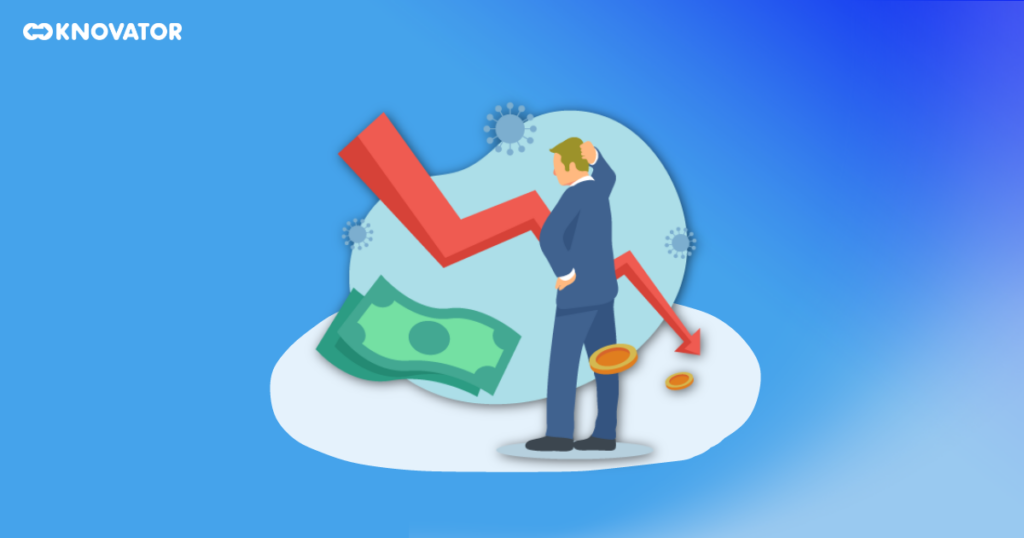 Did you know that the usage of AI in healthcare tends to save 50% of a firm’s yearly expenditure? AI can help to reduce costs in several ways, including:
Did you know that the usage of AI in healthcare tends to save 50% of a firm’s yearly expenditure? AI can help to reduce costs in several ways, including:
- Automating administrative tasks
AI automates administrative tasks such as scheduling appointments, processing claims, and managing patient records. This can reduce the need to appoint staff.
- Improving efficiency
AI helps improve healthcare processes’ efficiency by identifying bottlenecks and streamlining workflows. This may result in reduced costs and improved patient outcomes.
- Preventing fraud
AI can be used to avoid fraud and abuse in healthcare insurance claims. This can save healthcare providers and insurers millions of dollars each year.
4. Saves Time and Resources
 AI in healthcare can save time and resources in several ways. Here they are,
AI in healthcare can save time and resources in several ways. Here they are,
- Automate repetitive tasks: This can free healthcare professionals to focus on patient care.
- Identify potential health risks: This can help prevent diseases from developing or worsening.
- Personalize treatment plans: This can enhance the effectiveness of the treatment and reduce the chances of side effects.
- Develop new drugs: This can shorten the drug discovery process and make new medicines available to patients sooner.
5. Leads to improved patient care
 As you just read, the use of AI in healthcare aids doctors in identifying diseases at an earlier stage by detecting patterns in medical data. AI can also predict changes in a patient’s health, enabling early actions to be taken.
As you just read, the use of AI in healthcare aids doctors in identifying diseases at an earlier stage by detecting patterns in medical data. AI can also predict changes in a patient’s health, enabling early actions to be taken.
Additionally, it can create personalized treatment plans based on the individual’s genetic composition and lifestyle. Overall, AI makes healthcare more efficient, personalized, and proactive, ultimately leading to better patient care.
6. Ensures safer surgeries
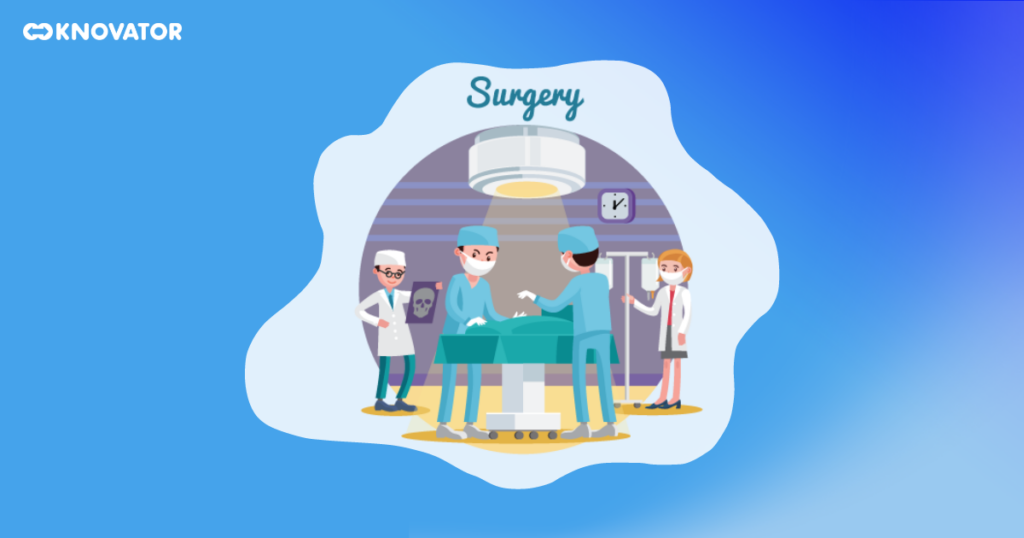 AI-powered surgical robots can increase surgeons’ skill and precision, leading to safer surgeries. These robots can operate in small spaces that would otherwise require open surgery and be more precise around sensitive organs and tissues. This can reduce the risk of blood loss, infection, and post-surgery pain.
AI-powered surgical robots can increase surgeons’ skill and precision, leading to safer surgeries. These robots can operate in small spaces that would otherwise require open surgery and be more precise around sensitive organs and tissues. This can reduce the risk of blood loss, infection, and post-surgery pain.
Moreover, AI-assisted surgery can give surgeons greater visibility and control during operations. This can help them perform complex procedures with greater precision and accuracy, leading to better patient outcomes.
The use of AI in healthcare is rapidly evolving, and AI-powered surgical robots will likely become more sophisticated in the years to come. This could lead to even safer and more effective surgeries, benefiting patients worldwide.
7. Enables easier information sharing
 Traditionally, patient data has been kept isolated in different healthcare systems, making it difficult for doctors and healthcare providers to access the information they require to make informed decisions. AI can help by integrating patient data from different sources into a single, centralized repository. This gives doctors a more complete view of a patient’s health history, leading to better diagnoses and treatment plans.
Traditionally, patient data has been kept isolated in different healthcare systems, making it difficult for doctors and healthcare providers to access the information they require to make informed decisions. AI can help by integrating patient data from different sources into a single, centralized repository. This gives doctors a more complete view of a patient’s health history, leading to better diagnoses and treatment plans.
Furthermore, AI can study vast amounts of patient data and detect patterns and trends that may not be detectable to the human eye. This information can be used to enhance the accuracy of diagnoses and to produce new treatments.
The usage of AI in healthcare enables easier information sharing and is a significant step forward in the quest for precision medicine. Precision remedy is an approach to healthcare that considers a patient’s genetic makeup, lifestyle, and environment to personalize treatment plans.
8. Better prevention care
 AI use in healthcare can provide better prevention care sharing by:
AI use in healthcare can provide better prevention care sharing by:
- Analyzing large datasets to identify patients at risk for developing certain diseases.
- Developing personalized prevention plans for patients based on their individual risk factors and medical history.
- Providing patients with educational resources about prevention and wellness.
- Connecting patients with other patients who are facing similar challenges.
- Making it easier for patients to share their health information with their healthcare providers.
By using AI to improve prevention care sharing, healthcare providers can help patients stay healthy and reduce their risk of developing chronic diseases.
9. Improves healthcare accessibility
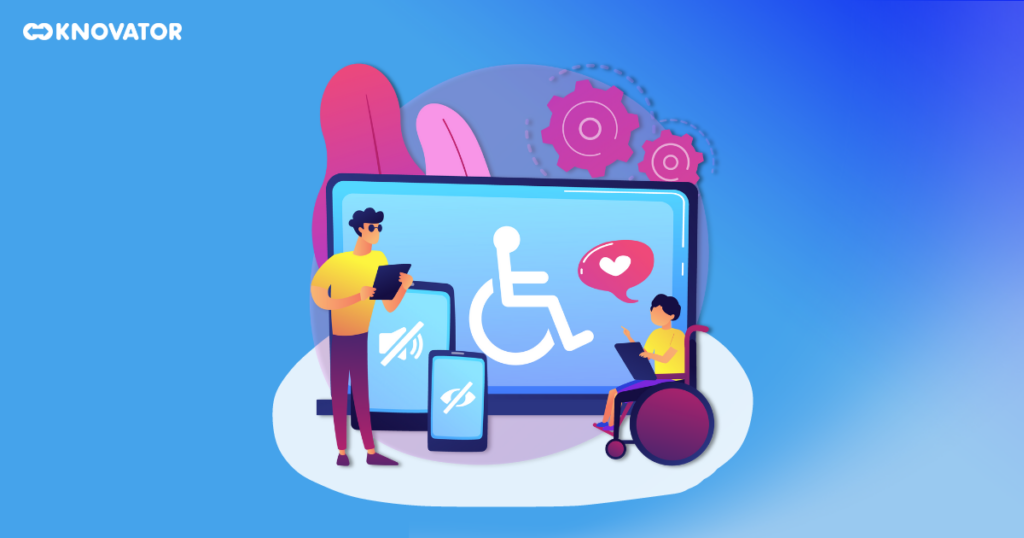 The use of AI in healthcare holds great potential to improve healthcare accessibility.
The use of AI in healthcare holds great potential to improve healthcare accessibility.
- Provide virtual care
AI-powered virtual assistants can provide patients with 24/7 access to healthcare information and support, regardless of geographical location. This can help save lives.
- Personalize treatment
AI can personalize treatment plans for patients based on their individual needs and circumstances. This helps ensure that patients get the best care possible.
AI In Healthcare: The Future Is Now
AI can revolutionize healthcare in several ways. By improving diagnosis, treatment, and drug discovery, AI can help to improve patient outcomes and minimize costs. AI can also be used to make healthcare more accessible and affordable and to improve the quality of care for all patients.
As AI technology develops, we expect to see even more innovative ways to use AI in healthcare. The future of healthcare is bright, and AI is playing a major role in making it happen.

